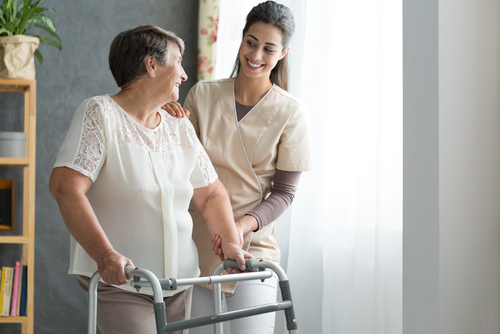Blog

The Connection Between Depression And Aging
August 1, 2023 0 Comment Category: Care Center
Assisted Living Facilities
The National Alliance on Mental Illness estimates that more than 6.5 million seniors had depression in 2009. Even though the data is old, many people still do not consider severe depression to be a concern for elderly parents, thus it still comes as a shock to many.
The physical symptoms of aging or certain behavioral features can indeed be signs of depression. As a result, depression is never properly diagnosed and is instead attributed to aging. This is unfortunate because senior depression is common, remains undiagnosed and untreated, and can have serious repercussions. Senior health experts say that depression is not a typical outcome of aging and therefore, knowing the warning signals is crucial if your parent begins to exhibit symptoms of depression.
Why Do Older People Get Depressed?
Seniors do not develop clinical depression as a result of aging in and of itself; although your parents may be sad that the years have flown by. Again, almost every senior can endure bodily changes and mental fluctuations. However, you and any caregivers should be concerned if these symptoms persist for more than a few weeks.
Why are older people more prone to depression? According to senior health experts, older people’s brains might not receive the same quantities of neurotransmitter chemicals as they once did (like serotonin), and research has revealed a connection between dementia and depression. Seniors are burdened by chronic pain, and some illnesses, such as cancer and heart disease, can make depression more likely.
A Cause For Concern
Because depression can have a significant impact on a patient’s health, it is considered to be a medical concern. These impacts are considerably more pronounced in older people. If it happens at all, depression may make other conditions’ pains worse and make recovery more difficult. Depression also increases the risk of a heart attack.
A more concerning statistic is the high suicide rate among seniors; it is the third-leading cause of injury-related mortality for the age group and is more common in men, particularly those who are widowed, divorced, or older than 85. Parents who are aging and suffering from depression are not just unhappy; their health is actually in danger.
How Can Community And Care Help?
Depression in elderly parents must be taken seriously. Seniors who exhibit some of these symptoms should get medical attention; you can’t just wait for the issue to go away. Additionally, the issue can be made worse for elderly people living alone because their adult children might not engage with them frequently enough to notice a problem.
Luckily, for those residing in senior care facilities, the symptoms of depression are recognized. Skilled caregivers are taught to identify the signs and let doctors and families know if they suspect depression. A senior living community as a whole can be quite helpful: People may notice if something is wrong with a close friend. Elderly depression can be terrifying, but by keeping an eye out for the indications and taking proper actions, families can get their elderly parents the care they require.

leave A comment